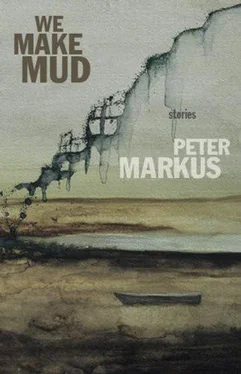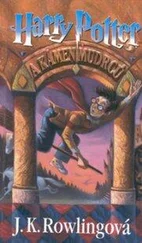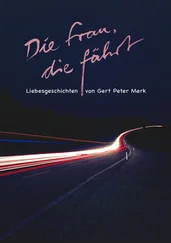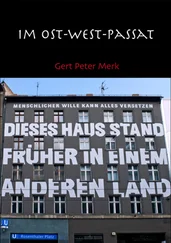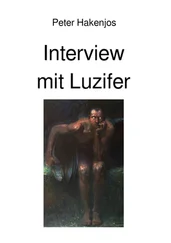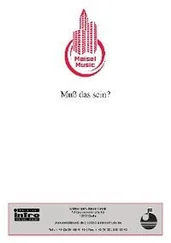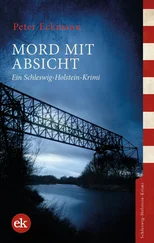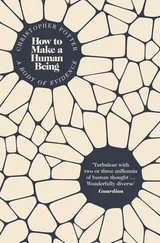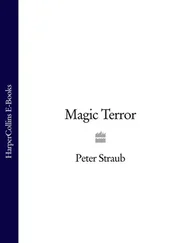Peter Markus - We Make Mud
Здесь есть возможность читать онлайн «Peter Markus - We Make Mud» весь текст электронной книги совершенно бесплатно (целиком полную версию без сокращений). В некоторых случаях можно слушать аудио, скачать через торрент в формате fb2 и присутствует краткое содержание. Год выпуска: 2011, Издательство: Dzanc Books, Жанр: Современная проза, на английском языке. Описание произведения, (предисловие) а так же отзывы посетителей доступны на портале библиотеки ЛибКат.
- Название:We Make Mud
- Автор:
- Издательство:Dzanc Books
- Жанр:
- Год:2011
- ISBN:нет данных
- Рейтинг книги:5 / 5. Голосов: 1
-
Избранное:Добавить в избранное
- Отзывы:
-
Ваша оценка:
- 100
- 1
- 2
- 3
- 4
- 5
We Make Mud: краткое содержание, описание и аннотация
Предлагаем к чтению аннотацию, описание, краткое содержание или предисловие (зависит от того, что написал сам автор книги «We Make Mud»). Если вы не нашли необходимую информацию о книге — напишите в комментариях, мы постараемся отыскать её.
We Make Mud — читать онлайн бесплатно полную книгу (весь текст) целиком
Ниже представлен текст книги, разбитый по страницам. Система сохранения места последней прочитанной страницы, позволяет с удобством читать онлайн бесплатно книгу «We Make Mud», без необходимости каждый раз заново искать на чём Вы остановились. Поставьте закладку, и сможете в любой момент перейти на страницу, на которой закончили чтение.
Интервал:
Закладка:
What the Fish of the River Tell Us to Do
In our room, at night, in the dark, us brothers, we do not sleep. What we do, at night, in our room, in the dark, is we stare out our bedroom’s window. Through our bedroom’s window, us brothers, we can see out back into the back of our backyard. Out back in the back of our backyard, us brothers, we can see our fish. We can see the fish, we can see those fishes’ heads, fish heads that are hammered and nailed, with rusty, bent-back nails, into our back-of-the-yard telephone pole. This back-of-the-yard telephone pole, it is studded with the chopped off heads of fish. These fish heads used to be fish with fish bodies living in the dirty river that runs its way through this dirty river town. Our town, it is a dirty river town with a dirty river running through it. Those fishes’ heads, they stare back at us brothers, open-eyed, open-mouthed, and it’s like they’re singing to us brothers. When these fish sing like this to us, us brothers, we listen to what these fish say. What the fish say to us brothers, when they sing like this to us, they say, Brothers, don’t leave. It was our father’s voice, it was our father who came home from work that day and told us we were leaving. When our father told us we were leaving, our father, he meant it, we were leaving for good: this dirty river, this dirty river town. Us brothers, we did not want to leave. We did not not want to leave behind this dirty river town or this dirty river where us brothers always liked to run down to it to fish. We did not want to leave behind the fish-headed telephone pole out back in the back of our backyard. There were exactly one hundred and fifty fish heads hammered and nailed and singing out to us brothers from the split black wood of that backyard telephone pole. We gave each of these fish each a name. Not one was called Jimmy or John. Jimmy and John was my and my brother’s name. We called each other Brother. Brother, I liked to say. Brother, I said, the night our father told us we were leaving. Give me your hand. Let’s show those fish how we’re going to keep ourselves from going away. Stay, I said, to Brother. Stand right here is what I said to him then, and then I walked with Brother out back into the back of our yard. Out back in the back of our backyard, that backyard telephone pole, it was sticking up, it was standing up, like the backbone of some stuck-in-the-mud fish. When I said to Brother, Give me your hand, Brother did like I told. He gave me his hand. I held Brother’s held out hand back up against the wood of this fish-headed backyard telephone pole. In my other hand, I was holding onto our father’s hammer. In my mouth, I was holding with my teeth a couple of our father’s rusty, bent-back nails. This might sting, I said to Brother. And then I raised back with that hammer. I drove that nail right through Brother’s hand. Brother didn’t flinch, or wince with his body, or make with his mouth the sound of a brother crying out. Good, Brother, I said. I was hammering in another nail into Brother’s other hand when our father stepped out into the back of the backyard. Boys, our father called out to us brothers. Us brothers, we turned with our boy heads back toward the sound of our father. We waited to hear what it was that our father was going to say to us brothers next. It was a long few seconds. The sky above the river where the steel mill stood shipwrecked in the river’s mud, it was dark and silent. Somewhere, I was sure, the sun was shining. You boys be sure to clean up before you come back in, our father said to us then. Our father turned back his back. Us brothers, we turned back to face back each other. I raised back the hammer. I lined up that rusted nail.
Stones that Float
There are stones along this river’s muddy bank that do not sink. They float, though in us brothers’ hands, these stones, they feel heavy to us brothers — feel the way that we believe stones should feel: hard, solid, things made from the dirt to be out over the dirt thrown. Throw them into the river, though, and these stones become boats that float on top of the river. Us brothers, we don’t know what to believe when we see a thing like this happen. This hasn’t always been the way with us brothers and stones. There was a time when, us brothers, we remember stones that used to sink. We’d throw them up and above and into the river and watch them disappear. In the darkness of the river we’d hear these stones go plunk and plunk. Maybe now it’s the river and not the stones. Maybe it’s that the river is more mud than it is water now, and the stones that we are throwing aren’t really floating. Maybe what these stones are doing is, they are just sitting there the way that stones sometimes sit in the mud: sit, and sit, for years, for centuries, until us brothers come walking up and along the river’s muddy shore and reach down with our muddy boy hands to pick the stones up from the mud. We pick the stones up from the mud so that we can throw them, so we can see a stone in flight, can stand and watch this thing without any wings rise above this earth.
We Eat Mud
Us brothers, we kept reaching down, with our hands, down into the mud. We kept on with our hands reaching down, into the mud, and when we did, us brothers, we kept on pulling up mud. But then once, when we reached with our hands down into the mud, us brothers, we pulled up Girl. We pulled Girl up, out of the mud, until Girl became a tree. Us brothers, up this girl tree, up, us brothers, we climbed. We climbed up this girl tree that used to be Girl, this tree that used to be mud, until us brothers got up to this tree’s top. Up here, at the top of this tree, us brothers, out of tree branches and tree leaves, all the color of mud, we made us a nest. In the sky above our heads, there was a cloud up there in the shape of a bird. This cloud, it was so shaped like how a bird is shaped that it became, it turned into, it was: a bird. This bird, it flew over to where, us brothers, we were standing up watching with our heads lifted up to see. When this bird that was once a cloud was close enough for us to touch it, us brothers, we reached out with our hands to touch it. We touched it. We touched this bird that was once a cloud once shaped in the shape of a bird, and when we did, this bird, it started singing. Then, this bird, this bird that, it was singing, then it and its singing, it flew away. When it came back, this bird, a little while later, like a good bird that always comes back, its bird mouth was filled with mud. This bird, with its bird mouth filled up with mud, this bird, it wasn’t singing. What this bird did, even though it wasn’t a bird singing to us brothers anymore, it flew back up close to us brothers above us our boy heads. Us brothers, looking up at this bird, we opened up our boy mouths. When we did this with our mouths, this bird, it opened up its mouth too, it started back up singing. And like this, with mud dripping down from this bird’s singing mouth and down into ours, us brothers, we began to eat.
Fish Heads
It was a good day of us brothers fishing. It was always a good day of us brothers fishing whenever us brothers went down to the river to go do us our fishing. It was a good day of us brothers going down to the river to go do us our fishing even when us brothers didn’t catch us many or any of those dirty river fish that live in the dirty river that runs through this dirty river town. But this day was not one of those days of us brothers not catching us many or even any fish. This day, us brothers, we fished out of the dirty river that runs through this dirty river town more fish than us brothers, with our mother and our father both sitting down at the table with us brothers, we caught us brothers more fish this day than the four of us in our house could in one sitting sit down and eat. It was one of those kinds of fishing days, that day, down at the river that day. Our buckets, that day, they couldn’t hold down inside of them all of our dirty river fish. Us brothers, we had to twice run down, with our buckets, back down to the dirty river that runs through this dirty river town for us brothers to bring back up to the back of our backyard all of that day’s dirty river catch. But the trouble, that day, with all of this was this: that when we got back to the back of our backyard that day with our buckets twice filled up to their muddy brims with fish, us brothers, we couldn’t find where our fish-cutting knives were that we used to gut and to cut off the heads off of our fish. Our fish-cutting, fish-gutting knives, they were nowhere to be, by us brothers, found. Us brothers, we usually kept these knives that were ours down inside the front pockets of the muddy-kneed trousers that us brothers always pulled on us in the morning. But when we fished our boy hands down inside of our trouser’s pockets, all we fished back up into our fists was the lint at the bottoms of these pockets. There was enough lint between us brothers, in our fists, that day, for us brothers to fly a kite with. But us brothers, we didn’t want us to fly us a kite that day. What us brothers wanted to do, that day, was we wanted to do with our fish what we always did with our fish. Us brothers, once we fished these fish that were ours out of the dirty river that runs through this dirty river town, we liked to take these fish out back to the back of our backyard, out back to where there was a telephone pole back there, back behind our father’s shed, that was studded with the chopped off heads of fish. Each fish, each fish head, us brothers, we gave each one a name. Not one was named Jimmy or John. Jimmy and John was mine and my brother’s name. We called each other Brother. Brother, Brother said, when we both of us looked and saw that both of us could not find inside of our trouser’s pockets our fish-cutting knives. What are we going to do? Brother said. How, was what Brother wanted to know, are we going to gut and cut off the heads off of our fish? When Brother said what he said, about our knives and our fish, I gave Brother a look. There was this look that us brothers, we sometimes liked to look at each other with this kind of a look. It was the kind of a look that actually hurt the eyes of the brother who was doing the looking. Imagine that look. Look, I told Brother this. Brother, look inside. Brother turned, then, when he heard what I said, and he went inside our house, in through the back door, and into our mother’s kitchen, to go looking inside there to see if he could find us our fish-gutting, fish-head-cutting knives. When Brother came back outside, a little while later, Brother was holding in both of his boy hands the kind of a knife that you use to butter your bread with. Brother, I said to Brother. Hold out your hands, I told him. Hand me over those knives. Brother did just like I told. We were brothers. We were each other’s voice inside our own heads. And so I took those knives out from Brother’s held-out hands, and then I threw them, hard and down, so that both of these knives stuck themselves down into the ground’s not-so-hard dirt. You can’t cut off a fish’s head, I said to Brother, with this kind of a knife, I said. That would take us all day was what I told him. Brother looked, then, and said to this, then, Brother, what’s the hurry? I looked back at Brother, once again, with our look. I looked him all over with this look. Brother, I said to Brother. Come with me, I said. And I walked my brother out back to the backest part of our backyard, out back to where our fish, our fish heads, they were with their open mouths, their open eyes, they were singing to us brothers. Brother, I said to Brother. Open up your mouth, I told Brother. Brother did like I told. We were brothers, remember. We were each other’s voice inside our own heads. Now, close your eyes shut, I told Brother this. And here again, Brother did what he was told. Good, Brother, I said. Brother did not, with his eyes closed shut like this and with his mouth opened up wide, see me reach my hand into one of our buckets and fish me out one of our fish. I held this fish, fish-head first, out toward my brother. Then I stuck that fish into Brother’s open mouth. Like this, fish after fish, opening and closing his mouth like this, Brother, us brothers, we chopped off these fishes’ heads.
Читать дальшеИнтервал:
Закладка:
Похожие книги на «We Make Mud»
Представляем Вашему вниманию похожие книги на «We Make Mud» списком для выбора. Мы отобрали схожую по названию и смыслу литературу в надежде предоставить читателям больше вариантов отыскать новые, интересные, ещё непрочитанные произведения.
Обсуждение, отзывы о книге «We Make Mud» и просто собственные мнения читателей. Оставьте ваши комментарии, напишите, что Вы думаете о произведении, его смысле или главных героях. Укажите что конкретно понравилось, а что нет, и почему Вы так считаете.
